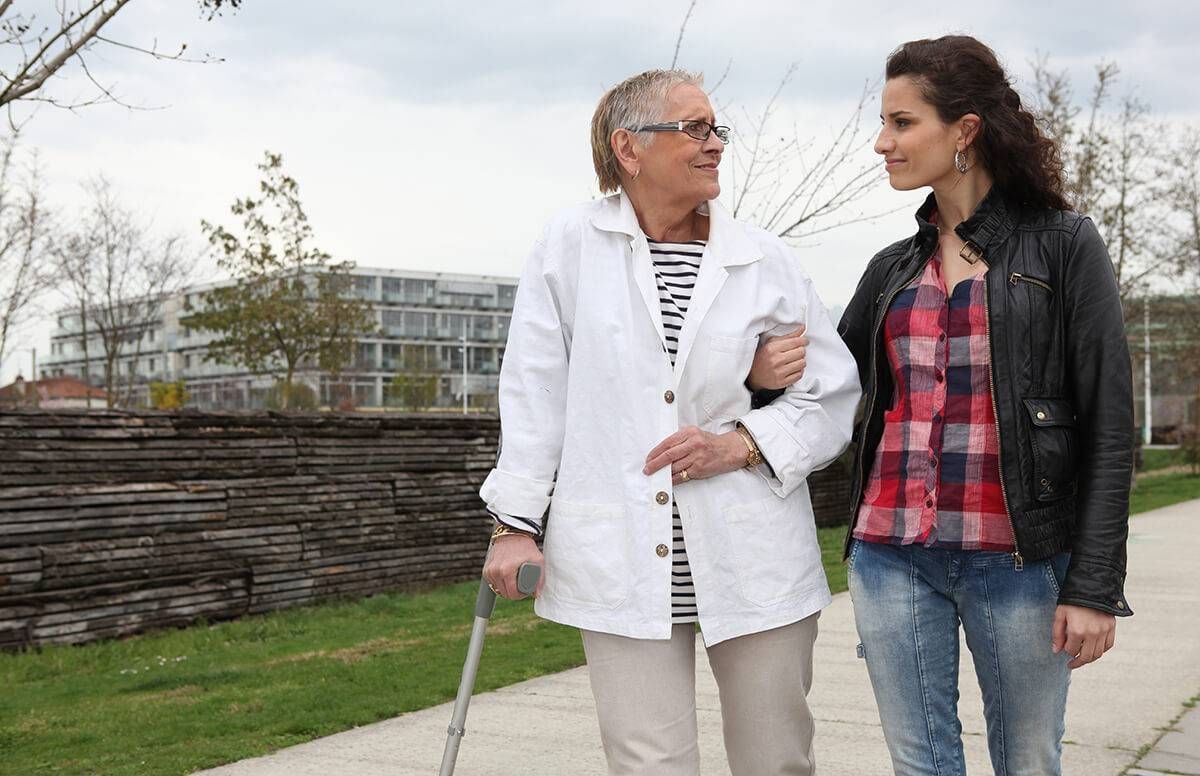6 Tips to Recover From Back Surgery Successfully
What the writer learned after a 'nightmare' recovery from his first operation
Nine years after a successful spinal fusion of two vertebrae in my lower back that relieved 90 percent of my sciatic and peripheral nerve pain, the stress on the next level up my back started to cause similar problems. A year later, I found myself facing another back surgery and dreading the ordeal of recovery.

That first time was truly awful. I remember it took amazing resolve to just roll over in bed, knowing that every movement caused excruciating pain. Walking up even the slightest incline — my driveway, for example — was torture, requiring a walker or cane for the first couple of weeks.
The pain and difficulty in regaining any quality of life was so off-putting that it was only until I knew I had no choice that I agreed to undergo the second operation. Had I learned anything that first time that would make it easier for me? I was, after all, 10 years older (I'm now 69), not to mention 10 pounds heavier.
Indeed, I had learned something. Now, just weeks after having had two more vertebrae fused, I can happily report that my recovery was vastly better.
Tips to Make it Easier
Here are six tips I picked up that can make it easier for you, whether it's your first or later back surgery:
1. Stay ahead of the pain. Pain is awful. It creeps into every aspect of your life. You're cranky, annoyed, short-tempered, a real joy to be around. You're not hungry, you find yourself immobile. And, worst of all, you're not healing.
Pain actually stops the post-surgery healing process. So eliminate as much of the pain as you can. That means taking pain meds. And not just when you need it, but before you need it. Once the pain creeps in, it's going to be a while before you get relief. So take the prescribed pain medicine as directed.
Worried about addiction? According to WebMD, people with no history of drug addiction using opioids as prescribed are "relatively unlikely" to become addicted. My surgeon conveyed a similar message. This is not chronic long-term pain you're dealing with. This is postsurgical pain. Take your meds and allow your body to heal. Ask your doctor if you have concerns, and be sure to keep prescription opioids out of the hands of others in your home, especially teens.
2. Honor the fatigue. After four or five hours of surgery, your body has been through what Dr. John Starr, my surgeon from the Washington Orthopedic and Sports Medicine Group in Washington, D.C., compares to a major car wreck. Your body feels that shock.
Plus, your body is recovering from four or five hours of anesthesia. Do you think that stuff leaves you after just a few hours? Some people have reported feeling the effects of anesthesia for weeks. Those effects include not just fatigue, but cognitive dysfunction as well. So the tip here is to rest. When you're tired, lie down and take a nap. It does little good for you to keep pushing yourself; it just makes the recovery process longer and more difficult.
3. Use adaptive devices to achieve normalcy. There's no better feeling than going home to your normal life, especially after it was ripped from you through surgery. The healing effect of feeling like your old self is enormous. And that means doing things for yourself that you did before. I'm talking about the basics here: showering, getting dressed, getting in and out of a chair, sleeping in your bed, and, of upmost importance, going to the bathroom!
But after surgery, you'll have so many restrictions on bending, lifting and twisting (not to mention the pain in doing those things), it will be tough to achieve that normalcy. Use your ingenuity and resourcefulness, but also use some of the many adaptive devices available.
Use the walker and/or cane the hospital provides — you're definitely going to need one or both of them. You may also want to get a commode or elevated toilet seat, reacher, shower seat and sock aid to help you pull your socks on. As you experience life back home, you'll find that there are some things you can do for yourself and others that will require help. But gaining your life back will help promote healing as much as anything else.
4. Don't worry that the back surgery didn't work. Ow, what's that pain on my hip? Why am I feeling tingling in my buttocks? Oh no, it didn't work. I went through this for nothing.
Wrong, wrong, wrong. Those feelings are normal. Continued nerve pain after back surgery is normal, even down your sciatic nerve. During surgery, the nerves are pushed around, so of course they're reacting. And don't forget about your history of inflammation and damage. Those affected nerves are not just going to bounce back instantaneously when the nerve root is given breathing space.
Nevertheless, as you recover, you'll have these fears that you "should" be feeling better and that the surgery didn't work. That's a common reaction and one that you mostly can dismiss. Sure, bring it up when you next see your surgeon for your regular visit. But rest assured the pains you're feeling are likely normal reactions to the surgery and to the condition you were in before the operation.
5. Don't let your recovery get you down. We all have hopes and expectations that we're going to bounce back quickly from surgery. Let's put this recovery into perspective. First of all, you're not 30 anymore. We just don't heal as quickly as we get a bit older.
Secondly, unless the nerve compression was caused by trauma, your condition developed over time. Chances are, it took several years. Recovery after an operation, and getting back to where you were, is not a quick process. Think about the fact that your bones will not fully fuse (after spinal fusion surgery) for 12 to 18 months. Yes, you'll be back to some semblance of "normal" well before that. But limit those elevated expectations and be real. For quite a while, you'll have good days and not-so-good days. It just goes along with the package.
6. Rely on others. My final tip is to take advantage of any help you can get. In fact, do more than that: make sure you put together a support network to help you recover. That means having backups and people around who you can rely on when you need a hand.
You won't be able to drive for several weeks — you'd be a danger to yourself and everyone around because you can't react quickly, not to mention the drugs you're taking. (Tiger Woods' reported use of Vicodin when he was found asleep in his car Monday followed a back surgery in April.) So prearrange rides when you need to go to the doctor, store and even social occasions.
Have someone close to you be there when you first start to shower or do something on your own. Just knowing someone's there will ease your anxiety, allowing you to master the basics you always took for granted. You'd be more than happy to help a loved one if he or she needed you; let your loved ones help you now.


